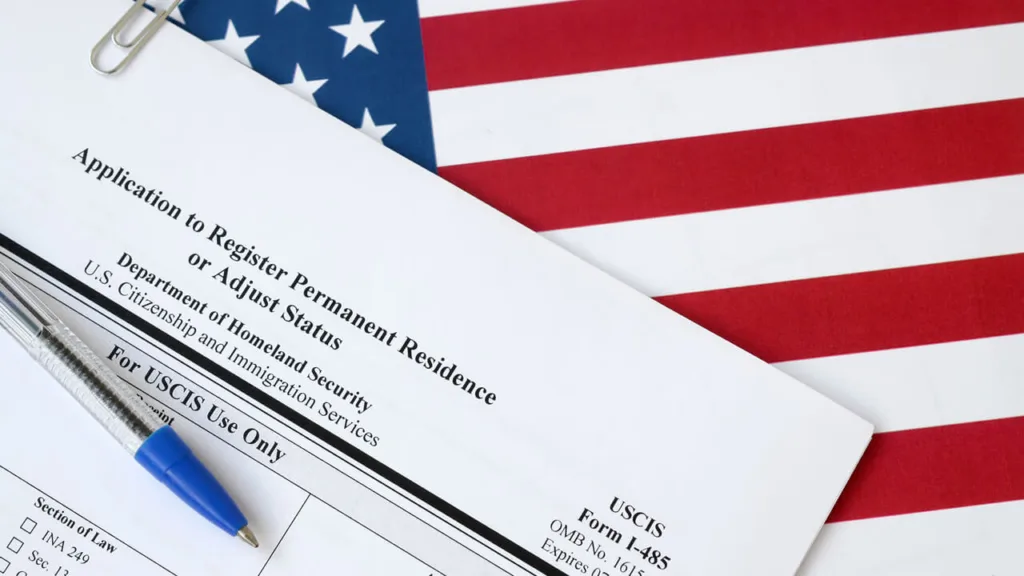Can You Get Legal Papers Without Immigration Sponsorship?

Many believe obtaining legal status in the United States without immigration sponsorship is impossible. As a result, they give up on their dream of a stable life in the U.S. However, this is a misconception—legal pathways exist to achieve it.
Before exploring alternatives, it’s essential to understand that every immigration case requires meeting sponsorship requirements for immigration and fulfilling specific legal obligations.
For example:
- Family-based sponsorship typically requires a financial affidavit of support, demonstrating an income of at least 125% of the federal poverty level.
- Employer-sponsored immigration requires the employer to prove that no qualified U.S. workers are available for the job and that they can pay the required wage.
Navigating the immigration sponsorship process can be complex, especially for those unfamiliar with U.S. immigration laws. Without the proper knowledge, the process can feel overwhelming. This is why seeking legal immigration assistance is crucial. Consider these real-life scenarios:
- Juan, a skilled professional, moved to the U.S. for career opportunities. He received a job offer, but the work visa sponsorship process seemed complicated. After consulting an immigration attorney, he discovered a visa category that fit his qualifications—one he hadn’t previously considered.
- María wanted to reunite with her children but didn’t meet the financial sponsorship requirements. With professional legal guidance, she found an alternative pathway to obtaining legal status.
The U.S. immigration sponsorship system can be complicated and full of uncertainties. An experienced immigration attorney can help you navigate the process, uncover lesser-known options, and make informed decisions about your future.
At Moumita Rahman Immigration Law, we understand how important stability is for you and your family. Contact us today to explore your legal options and take the first step toward a secure future.
How to Apply for a Green Card Without a Sponsor
Before applying for a Green Card sponsorship—whether with or without a sponsor—it’s essential to understand what permanent residency entails, its advantages, and the responsibilities that come with it.
One of the most significant benefits of obtaining a Green Card is that U.S. immigration law allows permanent residents to apply for jobs unavailable to temporary visa holders.
Additional immigration sponsorship benefits include:
- The ability to apply for U.S. citizenship after meeting residency requirements.
- The freedom to travel internationally without losing legal status.
- Protection under U.S. federal and state laws, ensuring legal rights in various situations.
However, obtaining a Green Card through sponsorship or independent means also comes with responsibilities:
- Permanent residents must file taxes with the Internal Revenue Service (IRS) and state tax authorities.
- Green Card holders do not have the same rights as U.S. citizens—they cannot vote in federal elections or obtain a U.S. passport.
- Sponsoring certain family members for a Green Card may be subject to restrictions.
When Can You Obtain Legal Status Without a Sponsor?
While most people obtain permanent residency through family sponsorship or employer-sponsored immigration, alternative pathways exist for those who prefer an independent process.
Some options include obtaining residency through extraordinary ability, investment, asylum, or humanitarian programs. Suppose you’re considering one of these routes. In that case, it’s crucial to understand the eligibility criteria and seek professional legal guidance to determine the best path for your situation.
Understanding the sponsorship requirements for immigration and the responsibilities of a Green Card holder is the first step toward securing legal residency in the U.S.
If you’re exploring ways to apply for a Green Card without sponsorship, consulting with an experienced immigration attorney can simplify the process and provide clarity.
Immigration Options Without a Sponsor
Navigating U.S. immigration laws can be overwhelming, especially when immigration sponsorship is not an option. Many people mistakenly believe that obtaining legal status is impossible without a family sponsor or an employer-sponsored immigration pathway.
The reality is that U.S. immigration sponsorship is just one route to obtaining permanent residency. Other legal pathways may still be available if you do not have a sponsor.
While adjusting your status without sponsorship is possible, the key is identifying the best immigration option based on your qualifications and personal circumstances. This requires careful planning and a deep understanding of sponsorship requirements.
Since every case is unique, making the right decision requires considering all available legal options. Working with an experienced immigration attorney can distinguish between a complicated process and a secure, well-planned path toward legal residency.
Are you interested in obtaining a visa without sponsorship? Here are five legal immigration pathways that may work for you:
1. Investment-Based Green Card (EB-5 Program)
Suppose you have the financial means to invest in the U.S. In that case, the EB-5 Immigrant Investor Program allows foreign entrepreneurs to obtain a Green Card without sponsorship.
The primary goal of the EB-5 program is to stimulate economic growth by encouraging foreign investment. To qualify, you must:
- Invest in a new commercial enterprise in the U.S.
- Create at least 10 full-time jobs for qualified U.S. workers.
The immigration sponsorship cost for EB-5 applicants varies depending on business location and investment amount:
- Higher investment amounts apply in standard regions.
- Lower investment thresholds are available for projects in areas with high unemployment.
There are two main ways to invest under the EB-5 program:
- Direct Investment: You must establish and operate your own business, hiring at least 10 employees directly.
- Regional Center Investment: You can invest in a government-approved project, which may include indirect job creation.
The EB-5 program offers a direct path to U.S. permanent residency, making it an attractive option for investors seeking immigration sponsorship alternatives.
2. Diversity Visa Lottery
The Diversity Visa (DV) Lottery is one of the simplest ways to obtain a Green Card without an immigration sponsor. As the name suggests, a random selection process grants permanent residency to applicants from countries with low U.S. immigration rates.
Key aspects of the program:
- There is no cost to apply—registration is free.
- The U.S. government holds an annual application period for the lottery.
- Winning does not guarantee a Green Card—applicants must complete the entire immigration process and meet eligibility requirements.
To qualify for the Diversity Visa Lottery, you must:
- Be a citizen of an eligible country (the U.S. Department of State updates the list annually).
- Have at least 12 years of primary and secondary education or equivalent.
- Have two years of work experience in a skilled occupation requiring specialized training.
Because the number of visas granted is limited, applicants are selected through a computerized lottery system. Individuals can apply for a Green Card without sponsorship if selected, provided they meet the eligibility criteria.
3. Extraordinary Ability Green Card (EB-1A)
Suppose you have outstanding achievements in your field. In that case, you may qualify for a Green Card without sponsorship under the EB-1A category for individuals with extraordinary ability.
This visa is designed for professionals with exceptional science, arts, education, business, or athletics talent. To qualify, you must demonstrate national or international recognition in your specialty.
Who qualifies?
- You may qualify if you have won a major international award (such as an Olympic medal or a Pulitzer Prize).
- If you haven’t received a major award, you must meet at least three of the following criteria:
- Receipt of national or international prizes for excellence in your field.
- Membership in prestigious organizations that require outstanding achievements.
- Publications about your work in major media outlets or professional journals.
- Participation as a judge or expert reviewer in your field.
- Significant contributions to your industry through research or innovation.
- Authorship of academic articles or published work.
- Exhibitions or public showcases of your work.
- Holding a leadership or key role in a distinguished organization.
- Earning a salary above the industry standard due to expertise.
- Commercial success in the performing arts.
The EB-1A does not require employer sponsorship, making it an ideal option for highly accomplished professionals seeking U.S. immigration sponsorship alternatives.
4. National Interest Waiver (EB-2 NIW)
If your work significantly benefits the U.S., you may qualify for a National Interest Waiver (NIW), which allows professionals to self-petition for a Green Card without a sponsor.
The EB-2 NIW visa is designed for individuals with expertise in fields that contribute to the U.S. economy, education, healthcare, or national security.
To qualify, you must meet one of these academic or professional requirements:
- Hold an advanced degree (master’s or higher).
- Have a bachelor’s degree plus at least five years of experience in your field.
- Demonstrate exceptional ability in science, arts, or business.
How Are EB-2 NIW Applications Evaluated?
U.S. immigration authorities assess applications based on three key factors:
- Substantial National Impact: Your work must broadly and significantly affect the country.
- Proven Expertise: You must be well-positioned to advance your field and contribute meaningfully.
- Public Interest Consideration: The benefits of granting you residency must outweigh the need for labor certification (generally required for employer-sponsored immigration).
Because the NIW Green Card sponsorship process does not require an employer or job offer, it provides a flexible immigration pathway for professionals contributing to critical U.S. industries.
5. Special Immigrant Visa (EB-4)
The EB-4 visa allows individuals who qualify as special immigrants to obtain a Green Card without an immigration sponsor. This category includes professionals and individuals in unique situations that do not fit into standard employment-based or family-based visa categories.
Who qualifies for the EB-4 category?
- Religious workers: Ministers and members of religious organizations with at least two years of membership in their institution.
- Special immigrant juveniles (SIJ): Minors who have been abused, abandoned, or neglected and are under the jurisdiction of a U.S. juvenile court.
- Certain physicians: Doctors who have worked in the U.S. for an extended period under specific medical programs.
- Members of the U.S. Armed Forces: Foreigners who have served at least 12 years in the U.S. military.
- Panama Canal employees: Individuals who worked in the Panama Canal Zone before September 30, 1979.
- U.S. government employees abroad: Foreign nationals who worked for the U.S. government overseas or for specific international organizations.
- Individuals assisting law enforcement: Non-citizens who have provided valuable information on criminal or terrorist organizations may qualify under this visa category.
The EB-4 visa provides a direct path to permanent residency, allowing individuals who meet the criteria to secure legal status in the U.S. without employer-sponsored immigration.
Tips for Obtaining a Green Card Without a Sponsor
How can you successfully apply for legal status without a sponsor? The key is exploring all available immigration pathways and ensuring you meet the eligibility criteria. Every case is different, and working with an experienced immigration attorney can help you make informed decisions.
Here’s what you should keep in mind:
- Understand the requirements: Some visas require proof of work experience, educational background, or financial investment. Make sure you meet all qualifications before applying.
- Gather supporting documents: Immigration applications require identity records, proof of eligibility, and official documentation. Be meticulous in preparing your case.
- Stay informed about immigration laws: Regulations change frequently, so consult immigration professionals to ensure your application aligns with current policies.
- Respect all deadlines: Immigration processes have strict timelines and missing deadlines can lead to application denials. Work closely with your attorney to stay on track.
- Seek professional legal guidance: A qualified immigration attorney can provide strategic advice and help you navigate the immigration sponsorship process with confidence.
Even without family or employer sponsorship, you still have legal pathways to permanent residency. Our experienced team is ready to assist you in finding the best immigration solution for your situation.
Contact us today and take the first step toward securing your future in the U.S without immigration sponsorship.



